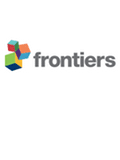
Frontiers in Immunology
Scope & Guideline
Advancing Immunological Insights for a Healthier Tomorrow
Introduction
Aims and Scopes
- Immune Responses and Mechanisms:
The journal publishes works that elucidate the mechanisms of immune responses, including the roles of various immune cells, cytokines, and signaling pathways in both innate and adaptive immunity. - Immunotherapy and Cancer:
A significant focus is placed on research related to immunotherapy, including the development of novel therapeutic strategies, biomarkers for response, and understanding tumor microenvironments. - Autoimmunity and Inflammatory Diseases:
The journal covers studies that investigate the pathogenesis of autoimmune diseases, inflammatory responses, and the interactions between immune cells and the environment. - Infectious Diseases and Vaccines:
Research on immune responses to infectious agents, vaccine development, and the dynamics of host-pathogen interactions are critical areas of publication. - Translational Research:
The journal emphasizes translational research that bridges basic immunology with clinical applications, aiming to improve therapies for various diseases. - Regenerative Medicine and Stem Cells:
Studies exploring the role of immune cells in regenerative medicine, including stem cell therapy and tissue engineering, are also featured. - Microbiome and Immunity:
The journal explores the interactions between the microbiome and the immune system, highlighting how microbial communities influence immune responses and disease outcomes.
Trending and Emerging
- Machine Learning and Artificial Intelligence in Immunology:
There is a growing trend towards integrating machine learning and AI into immunological research, particularly for predictive modeling and understanding complex immune responses. - Personalized and Precision Medicine:
Research focusing on personalized approaches to immunotherapy, including biomarker-driven strategies and individualized treatment plans, is increasingly prevalent. - Gut Microbiota and Immune Interactions:
Studies exploring the relationship between gut microbiota and immune responses are on the rise, particularly in relation to autoimmune diseases and metabolic disorders. - Inflammation and Aging:
Research examining the role of chronic inflammation in aging and its implications for immune function is gaining traction, highlighting the importance of immunosenescence. - Therapeutic Targeting of Immune Checkpoints and Metabolic Pathways:
Increasing attention is being paid to the therapeutic targeting of immune checkpoints and metabolic pathways in cancer and autoimmune diseases, reflecting a more nuanced understanding of immune regulation. - Neuroimmunology:
The intersection of neuroscience and immunology is an emerging field, with research focusing on how immune responses impact neurological conditions and vice versa. - Extracellular Vesicles in Immune Regulation:
Research on the role of extracellular vesicles in mediating immune responses and their potential as therapeutic agents is gaining momentum, reflecting a shift towards understanding cell-cell communication.
Declining or Waning
- Traditional Vaccinology:
Research focused on traditional vaccine formulations and their immunological responses has seen a decline as more innovative approaches, such as mRNA and viral-vectored vaccines, gain prominence. - Basic Mechanisms of Immune Tolerance:
Studies purely focused on the basic mechanisms of immune tolerance without translational implications are appearing less frequently, as the emphasis shifts towards clinical applications. - Single-Agent Cancer Therapies:
There is a noticeable decrease in papers dedicated to single-agent therapies in cancer treatment, with a growing interest in combination therapies involving immunotherapy. - Animal Models in Immunology:
Publications primarily centered on animal models without clear translational relevance to human health are becoming less common, as the field moves towards more clinically relevant studies. - Basic Immunology Without Application:
Research focusing solely on basic immunological principles, without a clear application to disease or therapy, is being overshadowed by studies with direct clinical implications.
Similar Journals
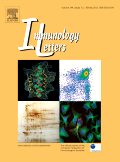
IMMUNOLOGY LETTERS
Unveiling the Complexities of the Immune SystemIMMUOLOGY LETTERS, published by Elsevier, is a distinguished journal in the field of immunology, focusing on the latest advancements and findings that significantly influence immunological research and clinical applications. Established in 1979, the journal has evolved to cater to a global readership, featuring high-quality peer-reviewed articles across a diverse spectrum of topics related to immunity and allergic responses. With an impressive Q2 category ranking in both Immunology and Allergy as of 2023, it holds a strong position within the scientific community, evidenced by its commendable Scopus rankings (Rank #71/233 in Medicine - Immunology and Allergy and Rank #85/236 in Immunology and Microbiology - Immunology). While primarily subscription-based, the journal aims to foster knowledge dissemination that encourages collaboration among researchers and practitioners alike, making significant contributions to the understanding of immune mechanisms. The journal is integral for educators, students, and professionals aiming to stay abreast of current trends and breakthroughs in the immune system's intricate functions.
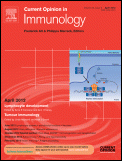
CURRENT OPINION IN IMMUNOLOGY
Uncovering Insights in the Immune LandscapeCURRENT OPINION IN IMMUNOLOGY is a prestigious journal dedicated to the dynamic field of immunology, published by CURRENT BIOLOGY LTD in the United Kingdom. With an ISSN of 0952-7915 and an E-ISSN of 1879-0372, this journal has been a cornerstone of scholarly communication since its inception in 1988 and continues to disseminate cutting-edge research and reviews aimed at advancing our understanding of immune responses. Holding a remarkable Q1 ranking in both Immunology and Allergy categories for 2023, it ranks impressively within the top percentiles in its field, securing 27th233 in Immunology and Allergy and 31st out of 236 in Immunology and Microbiology. Emphasizing high-impact research, the journal provides researchers, professionals, and students with valuable insights into emerging trends and critical developments. As a vital resource in immunological research, it serves as a platform for disseminating innovative findings, fostering collaboration, and enhancing scholarly exchange in a rapidly evolving scientific landscape.

JOURNAL OF IMMUNOLOGY
Driving Discoveries in Immune HealthWelcome to the JOURNAL OF IMMUNOLOGY, a prestigious publication associated with the American Association of Immunologists and dedicated to advancing the field of immunology. With a rich history dating back to 1945, this journal is renowned for its high-impact research, evident in its notable 2023 Q1 rankings in both Immunology and Allergy, as well as its strong positions in Scopus rankings—Rank #68 in Immunology and Allergy and Rank #79 in Immunology and Microbiology. Although it operates on a subscription basis, its commitment to publishing cutting-edge studies ensures that it remains a vital resource for scientists, healthcare professionals, and students alike. As the journal continues to pave the way for innovative research and breakthroughs in immunological science, it facilitates a platform for dialogue and discovery among researchers and practitioners across the globe.

TRENDS IN IMMUNOLOGY
Shaping the Future of Immunology Through Comprehensive ReviewsTRENDS IN IMMUNOLOGY, published by CELL PRESS, stands as a premier source of insights and developments within the field of immunology. With an ISSN of 1471-4906 and E-ISSN of 1471-4981, this journal has established a strong reputation, evidenced by its prestigious status in Q1 quartiles for both Immunology and Allergy in 2023. It is ranked #13 out of 233 in the Scopus category of Medicine – Immunology and Allergy, and #16 out of 236 in Immunology and Microbiology, placing it within the top 94th and 93rd percentiles respectively. Since its inception in 1987, TRENDS IN IMMUNOLOGY has provided a critical platform for researchers, professionals, and students to access the latest advancements and integrative reviews in immunological research. The journal offers open access options, enhancing the accessibility of its high-impact content to a global audience. Researchers and practitioners rely on its pages not only for cutting-edge findings but also for comprehensive discussions that drive the future of immunology research.
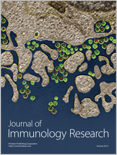
Journal of Immunology Research
Connecting Researchers: Elevating the Study of Immunology WorldwideJournal of Immunology Research, published by HINDAWI LTD, stands as a pivotal open-access journal in the realm of immunology, with a particular emphasis on advancing knowledge in both fundamental and applied aspects of the field. Since its inception in 1990, the journal has committed to the dissemination of high-quality research, earning a respectable impact factor that reflects its significance. Based in Egypt, it provides a platform for researchers from around the world, showcasing innovative studies and reviews that contribute to the understanding of immune system mechanisms. Its 2023 rankings place it in the Q2 category for Immunology and Allergy, and Q1 in the broader category of Medicine (miscellaneous), indicating a strong reputation among its peers. Through its open-access model, the journal promotes wide accessibility of cutting-edge research, catering to researchers, professionals, and students alike. With ambitions that converge through 2024, the Journal of Immunology Research continues to be an essential resource for those seeking to explore the forefront of immunological science.

IMMUNOLOGY
Pioneering Discoveries in Immunology Since 1958IMMUNOLOGY is a premier journal published by Wiley that has been at the forefront of the field since its inception in 1958. With an impressive impact factor and classified in the Q1 quartile for both Immunology and Allergy as of 2023, this journal is highly regarded among researchers and professionals alike. It ranks 36th out of 233 in the Medicine/Immunology and Allergy category, and 40th out of 236 in the Immunology and Microbiology segment on Scopus, placing it firmly within the top percentile of its field. The journal is dedicated to publishing high-quality research that advances our understanding of immunological processes, bridging basic science with clinical applications. Although it does not operate under an open-access model, it offers conventional access options that remain integral to the dissemination of vital immunological research. With its broad scope and commitment to scholarly excellence, IMMUNOLOGY continues to serve as an essential resource for those seeking the latest advancements in immunology, fostering innovation and collaboration among scientists globally.

Immunotherapy Advances
Pioneering research that shapes the future of patient care.Immunotherapy Advances, published by Oxford University Press, stands at the forefront of the rapidly evolving field of immunology and microbe interactions, focusing specifically on novel immunotherapeutic strategies and their clinical applications. Established in 2021, this peer-reviewed journal aims to disseminate high-quality research that contributes to the understanding and advancement of immunotherapeutic techniques, potentially transforming patient care in immunology. With a current Scopus rank of #140 out of 236 in the realm of Immunology, placing it in the 40th percentile, Immunotherapy Advances is positioned to be an integral resource for researchers, healthcare professionals, and students eager to stay updated with groundbreaking findings and methodologies. The journal is dedicated to fostering innovative discussions and collaborations, ensuring open access to vital research that influences treatment paradigms globally.
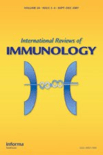
INTERNATIONAL REVIEWS OF IMMUNOLOGY
Pioneering Discoveries in Immune ScienceINTERNATIONAL REVIEWS OF IMMUNOLOGY, published by Taylor & Francis Inc, is a leading academic journal that has been a cornerstone of immunological research since its inception in 1986. With an impressive impact factor and ranked in the top quartiles of its field (Q2 in both Immunology and Allergy), this journal offers a critical platform for the dissemination of influential findings and advancements within immunology. Spanning a diverse array of topics, from basic immune mechanisms to clinical applications, it aims to support the global scientific community in enhancing immunological understanding and therapeutic interventions. Researchers and professionals alike benefit from insights provided by renowned contributors, ensuring that the journal remains relevant in a rapidly evolving field. Directly accessible through subscription or institutional access, INTERNATIONAL REVIEWS OF IMMUNOLOGY is committed to fostering collaboration and innovation, making it an essential resource for anyone involved in immunological research and practice.

IMMUNOLOGY AND CELL BIOLOGY
Pioneering Research in Immune and Cellular BiologyIMUNOLOGY AND CELL BIOLOGY, published by Wiley, serves as a prominent platform for disseminating cutting-edge research in the fields of immunology and cell biology. With an ISSN of 0818-9641 and an E-ISSN of 1440-1711, this journal has established itself since its inception in 1987, demonstrating a commitment to advancing knowledge in its disciplines through high-quality articles. Renowned for its rigorous peer-review process, it holds a Q2 quartile ranking in both immunology and cell biology categories as of 2023, showing its competitive stature in these fields. IMUNOLOGY AND CELL BIOLOGY is indexed among the elite journals worldwide, with impressive Scopus rankings, including a rank of #75/233 in Immunology and Allergy. The journal’s comprehensive scope ensures that it caters to an audience of researchers, professionals, and students who are dedicated to exploring the intricate mechanisms of immune responses and cellular interactions. Although it does not operate under an open access model, its subscription-based content remains invaluable for those seeking to broaden their understanding of immunology and cell biology. By providing a forum for significant scientific dialogue, IMUNOLOGY AND CELL BIOLOGY continues to shape the future of research in these vital areas.

EUROPEAN JOURNAL OF IMMUNOLOGY
Leading the Charge in Allergy and Immunology StudiesWelcome to the European Journal of Immunology, a premier peer-reviewed journal dedicated to advancing the field of immunology and allergy research. Established in 1971 and published by Wiley, this esteemed journal has been consistently ranked in the top quartile (Q1) across its categories, highlighting its significant impact within the scientific community. With an impressive Scopus ranking, the journal occupies the 64th position in Immunology and Allergy and the 74th in the broader sector of Immunology and Microbiology, demonstrating its vital role in driving innovation and knowledge in immunological studies. The European Journal of Immunology publishes high-quality original research, comprehensive reviews, and insightful commentary, making it an indispensable resource for researchers, healthcare professionals, and students dedicated to understanding the complexities of the immune system. Although not an open-access journal, it offers various subscription options to ensure that institutions and individuals can access pivotal research that shapes the future of immunology.